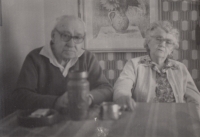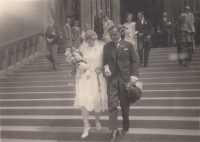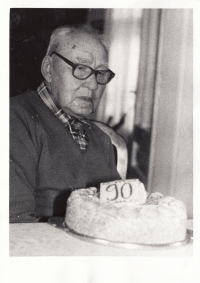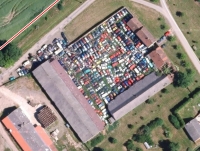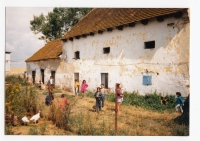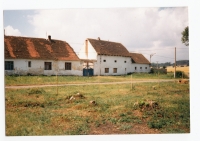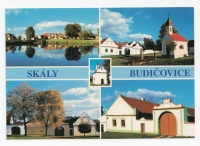I don’t know what they were so interested in hurting even us kids
Eleanora Korandová, née Holečková, was born on January 9, 1938 in Budičovice settlement, belonging to Skály village in Písek district. She was the youngest of four kids of Josef and Anna Holečkovi. Her parents owned a 55-acre homestead in the settlement, which they had purchased from Jan Schwarzenberg in 1932. Eleanora completed five years of school in Heřmaň and in sixth grade started to communite to a primary school in Protivín. Shortly after the February 1948 coup d’état, Communists seized power in the village Skály as well. Their goal was to create an agricultural cooperative (JZD). The homestead of Holečkovi was the biggest one in town, so its acquisition was strategic for the establishment of a JZD. In 1950 the homestead was appropriated and all the family savings were confiscated and deposited to an escrow account, from which it was never released. The parents were banned from residing in the Písek district. Holečkovi had to move to Stožice near Vodňany to a house of a Elanora’s grandfather from her father’s side. Both her brothers had to join up the Technical auxiliary battalion where they worked in mines. Eleanora finished primary school in Vodňany with excellent study results, her wish was to further study and become a teacher, but she was only allowed to choose a vocational school. She chose an apprenticeship with training of practical skills in the factory Rudý Letov in Letňany, Prague. After graduation she was recommended for further studies and decided for Industrial high school in České Budějovice. To financially assist her parents, she started working as a technical controller of a national company Motor in České Budějovice and finished her high school, including the final exam, after devoting herself to evening studies. In the 1960s she joined a printing office of the Motor company, where she worked even after its privatization until her retirement. The native homestead in Budičovice was returned to the family in early 1990s in poor condition. The family didn’t have enough money for reconstruction and rebuilding of the agricultural enterprise, also the younger family members did not have any agricultural education. The family sold the farm off, the current owner now runs a scrapyard there and the buildings keep falling into ruin. Eleonora Korandová now lives in České Budějovice and enjoys reading and walks.
